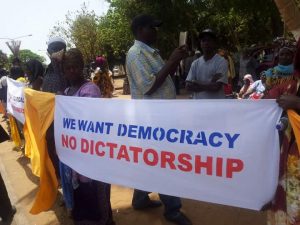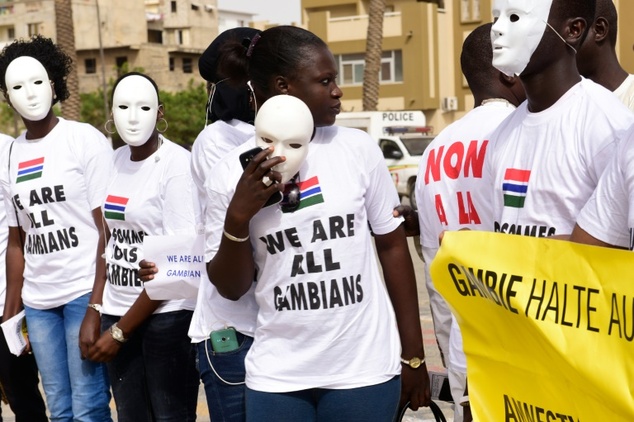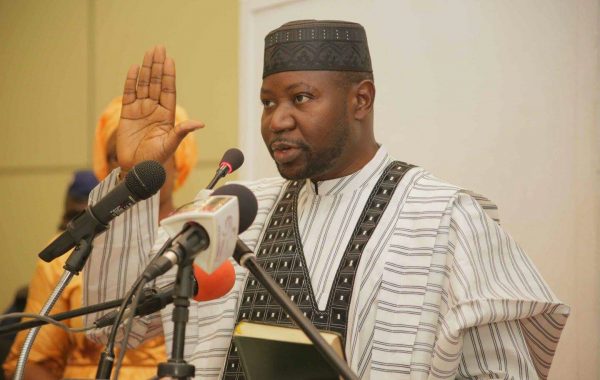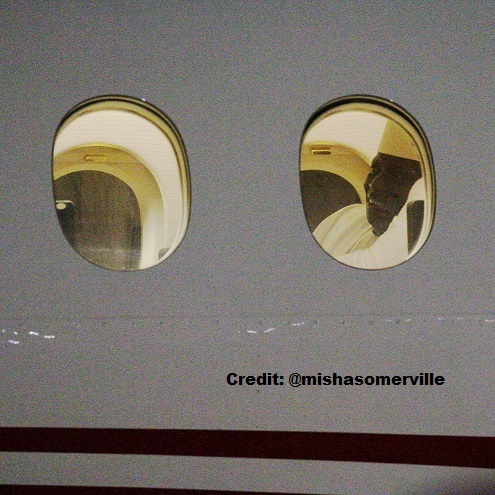
(JollofNews) – “We are ready for change!” These were the words of the taxi driver who picked me up from the airport in Gambia. We had just passed a huge billboard bearing the image of President Yahya Jammeh, and when I asked the driver about his political views I had expected the caution that is typical in Gambia, a country long dominated by fear and repression.
This unexpected willingness to speak out was something I encountered again and again in Gambia, where I had come to attend the ordinary session of the African Commission on Human and Peoples’ Rights.
Presidential elections are due to take place on December 1, and this year Gambians have been taking to the streets. The response has been predictably brutal – in April and May dozens of peaceful protesters and bystanders were beaten and arrested by police, including the leader of the opposition United Democratic Party. One man died in custody after being tortured.
But something is moving in Gambia. During my time in the capital, Banjul, I met Gambians who said they were ready to claim back their human rights and defend their freedoms, people who had had enough of systematic human rights violations and impunity for perpetrators.
On the margins of the African Commission session, a side event was held focussing on the human rights situation in Gambia. This event, organized by the press freedom watchdog, ARTICLE 19, in collaboration with other African organizations, was unusual.
Human rights, which have been under systematic attack in Gambia for the past 22 years, are not often the subject of open discussion in the country. For once, there was no need to go into exile or cross the border to feel free to speak up about the human rights situation in the country.

Sabrina Mahtani, Amnesty International researcher on Gambia and author of the report Dangerous to Dissent: Human rights under threat in Gambia, was among the panel speakers at the event. Others included representatives from Article 19, Senegal-based Rencontre Africaine Pour la Defense des Droits de l’Homme, Human Rights Watch, the Gambia Press Union and the Open Society Foundations.
Not wanting to be left out of such a key event, the African Commission itself sent three of its commissioners to speak. Perhaps conscious of the timidity to date of regional institutions in tackling problems in Gambia, the commissioners stressed their concerns about the human rights situation and highlighted the efforts of the African Commission to find a solution.
For Amnesty International, it is clear that what is going on in Gambia is a human rights crisis that requires the intervention of African institutions, including the African Commission, the African Union and the Economic Community of West African States, Ecowas.
The backlash following an attempted coup in December 2014 has seen a spike in enforced disappearances and arbitrary detention, with journalists and human rights defenders often thrown behind bars for trying to speak out.
Torture and ill-treatment are routine, with severe beatings, electrocution and asphyxiation reported by former detainees. Political protests have been brutally repressed. People are subject to harassment and persecution on the basis of their real or perceived sexual orientation or identity, leading many LGBTI people to flee the country.
This has led to a stifling climate of fear, where people dare not speak out against the government for fear of harsh reprisal.
So when the moment came to open the floor at the panel event, and give the Gambians present at the event the opportunity to raise their voices, I was surprised to see the fierce looks on their faces. They were not scared. They wanted to tell their stories.

Gambian journalists explained the challenges and risks they face for doing their legitimate work in the country. A Gambian activist, who refers to herself as “Mama Africa” in reference to her age, explained that she has heard about human rights for almost her entire lifetime but that they simply don’t exist in her country.
What moved me the most was the testimony of a young girl who had the courage to tell the audience what her family had gone through since her mother’s arrest during a peaceful demonstration earlier in the year.
Despite suffering from hypertension while in prison, her mother was not given access to medication. As a result, and to the watching family’s horror, she collapsed in court. Though she has now been released on bail, their nightmare continues.
Every time she is summoned for a court appearance she suffers anxiety attacks. This is all the more shocking when you consider that this woman’s only crime was peacefully protesting; and it is even more impressive that her daughter was still determined to speak out.
Listening to the voices of Gambians like her, and seeing the people who are taking to the streets to claim their rights to peaceful assembly and demonstration, gave me cause for hope. Something is moving in Gambia and I hope that this move will lead to a country where human rights are finally fully respected.
Written by Marta Colomer
The author is a campaigner for West Africa at Amnesty International.






Good story. I’m going in January..will be interesting to see